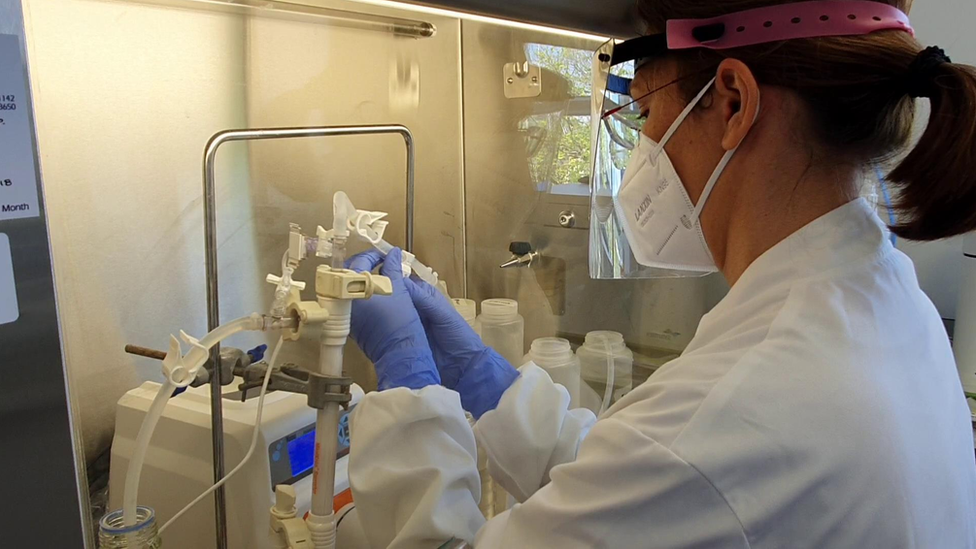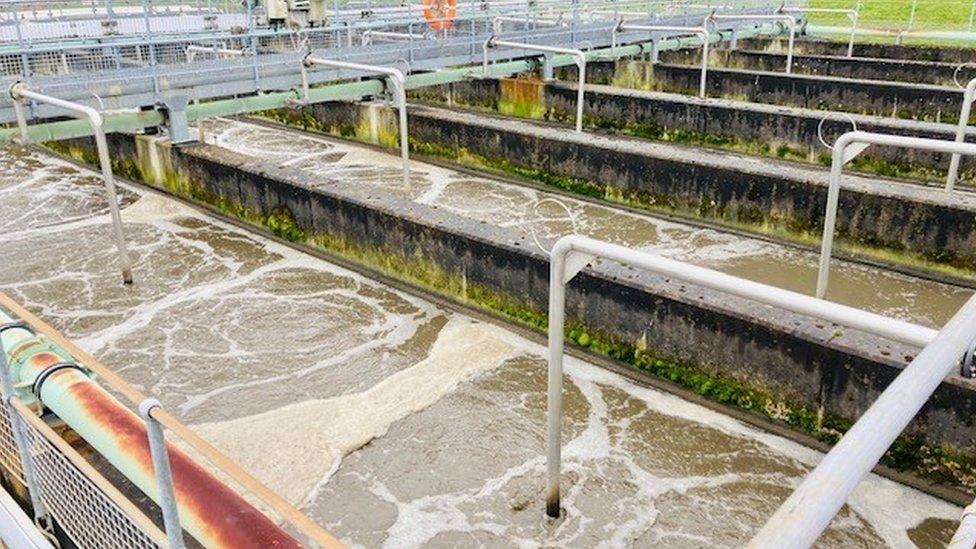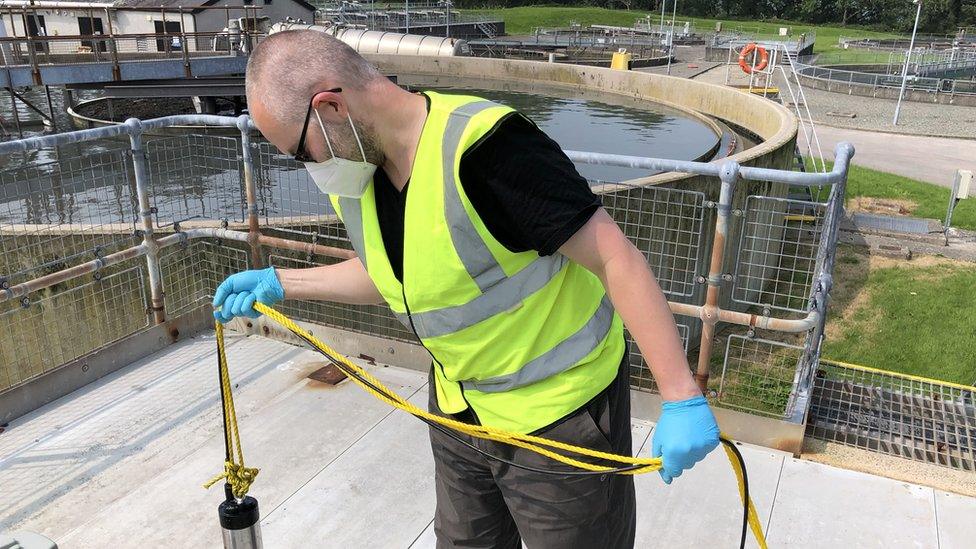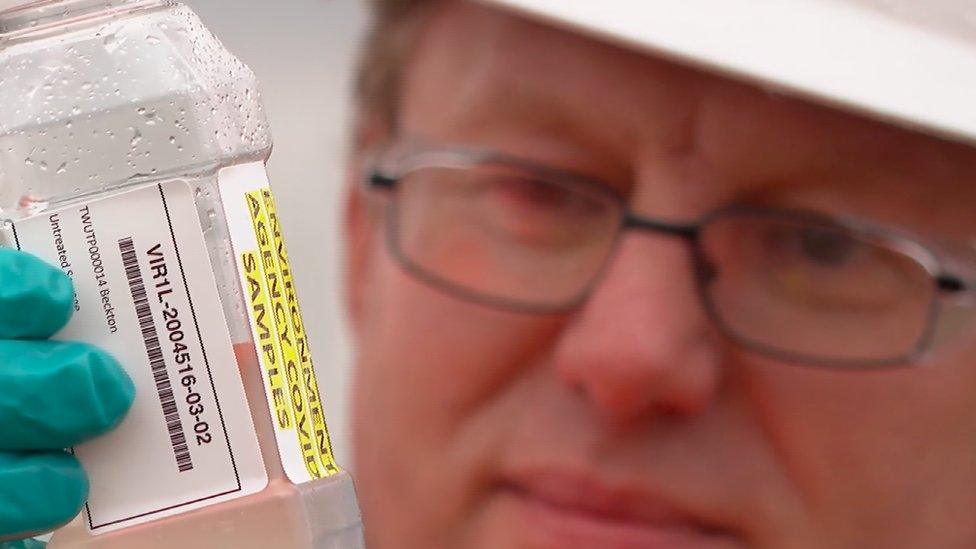Covid: Waste water testing could measure Wales' happiness
- Published

Samples of sewage across Wales have been tested for Covid during the pandemic
Technology used to test Covid levels from sewerage could be used to gauge "how happy the nation is".
Prof Davey Jones, of Bangor University, said samples could measure factors from drug use to general wellbeing.
During the pandemic waste water has been tested to tell whether Covid levels are rising or falling within communities.
Now the Welsh government has confirmed the programme has been rolled out to all health boards and councils.
Prof Jones said waste water was "an incredible Pandora's box which just needs to be opened" and could be used to indicate levels of drugs, and viruses and microplastics.
It could also monitor levels of serotonin and other compounds, which could help show how happy people are in different parts of Wales, he said.
Scientists say samples could measure factors from drug use to general wellbeing.
Bangor University scientists began monitoring sewage at the Treborth Wastewater Treatment Works when the pandemic began.
Under the scheme, samples from waste water are automatically taken every 20 minutes, to show Covid rates within communities.
Scientists said the method was key to the early detection of the Omicron wave in Wales and will also be able to monitor the development of new variants.
But Prof Jones said waste water "tells us everything about how society is operating" and could lead to even more exciting revelations in the future.
'Just the start'
"For us, this is the tip of the iceberg. I think most of us work on the philosophy of flush and forget - we flush the toilet, we pull the chain, and we forget about what happens next.
"But for us, it's a case of catch and discover really, because waste water tells no lies."
Testing for flu prevalence was already underway, the scientist said, "but that really is just the start of it".

"Waste water is an incredible Pandora's box which just needs to be opened, Prof Jones has said
The testing wastewater for Covid-19 programme is a collaboration between Bangor and Cardiff universities, Dŵr Cymru Welsh Water and Hafren Dyfrdwy.
Tony Harrington, director of environment at Dŵr Cymru Welsh Water, said he hopes they can continue to monitor more than just coronavirus and provide "early warning that something is going on in a catchment that they need to be alerted to".
Health Minister Eluned Morgan said the widespread monitoring for Covid would give authorities "a better sense of what genuinely is going on within our communities", which would allow informed decisions to be made on potential responses.
She also said the technology could monitor whether people are taking drugs more in certain areas than others.
Coronavirus: Tracking new outbreaks in the sewers
But using it as an early warning system needs to be subject to "robust science and evaluation", warned chief scientific adviser for health, Dr Rob Orford.
He said there were many surveillance tools for monitoring communicable diseases, but "the application of waste water could be a lot broader, right from climate change through hydrology, medicines. It really has incredible potential utility that we need to evaluate".

THE ASIAN WELSH: How immigration from the Indian subcontinent transformed Welsh health, culture and the economy
FIGHT FOR YOUR RIGHTS: X-Ray returns and they've got your back

- Published23 October 2020

- Published13 January 2022

- Published23 October 2020
